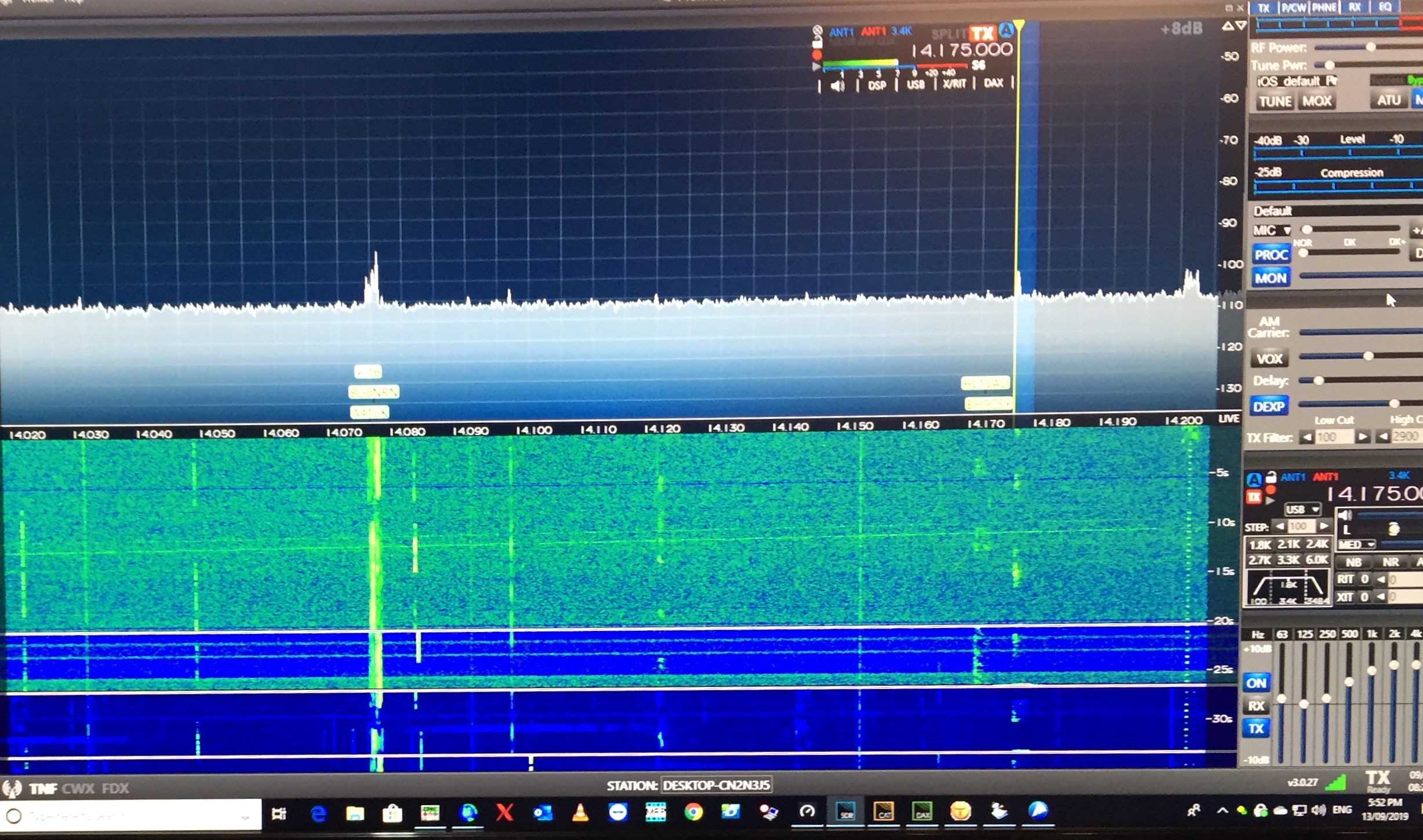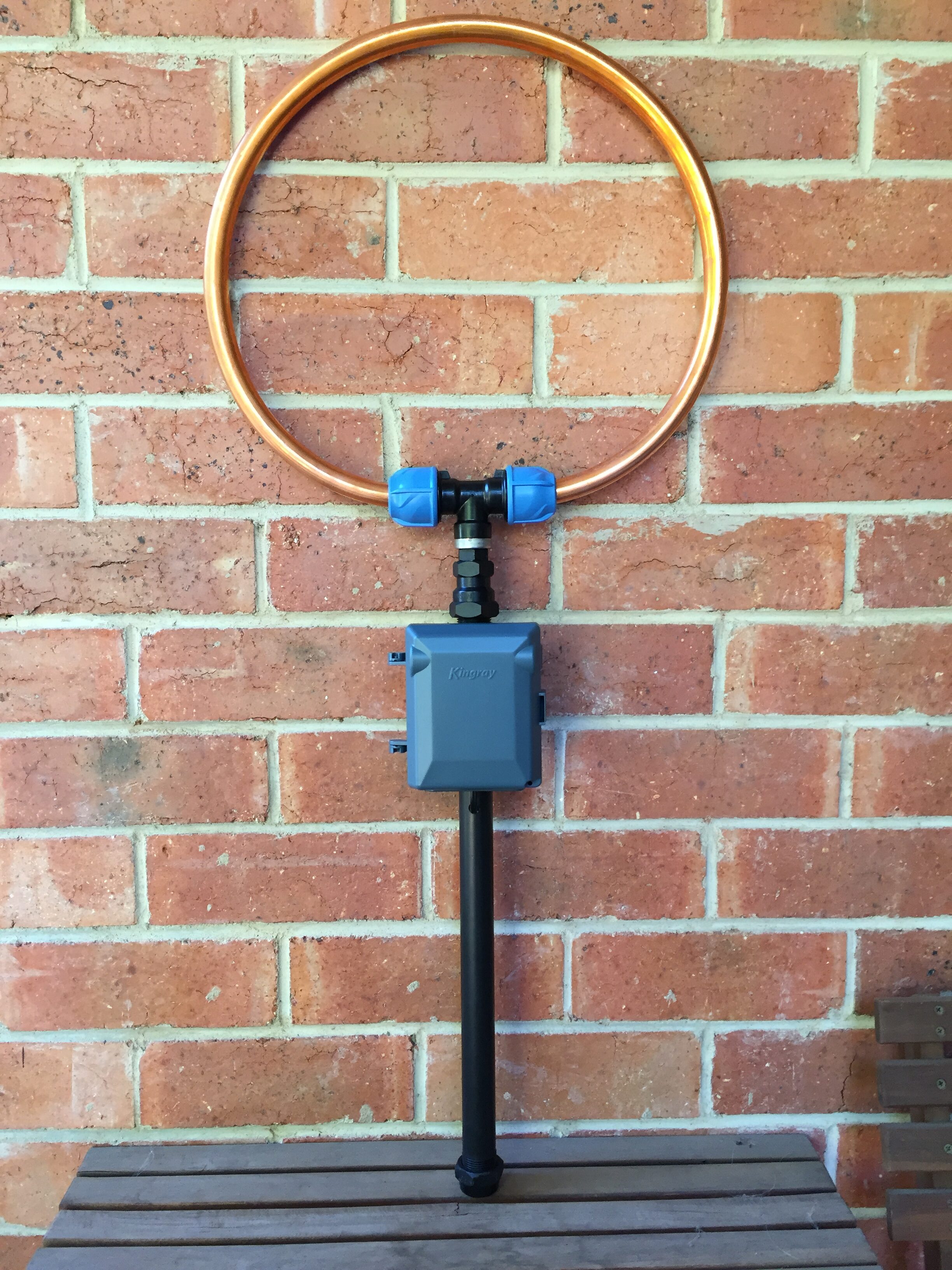Thanks Steve VK5SFA for this article.
Sometime in late July 2019, a strong wideband noise appeared across all HF bands at my home QTH in Adelaide. The noise level was S9+20dB (-50dBm) and was making HF reception from my suburban block almost impossible.

I started the process of remedying the situation by logging the interference start and stop times over a few days. The noise quickly developed into a regular pattern; it would commence as dusk approached and stop usually around 10.30PM -11:00 PM most nights. It would also be evident on gloomy overcast days. These characteristics suggested to me that domestic lighting might be the cause. Some basic radio direction finding from my home QTH put the noise source along a bearing of 60° – 240°.
Some subtle radio direction finding work triangulated the source down to a house about 400 metres away from my home QTH. Further observations with a HF receiver, stepped attenuator and a small magnetic loop antenna led me to the property where the noise source was being generated.

At this point in time, I ensured my journal and evidence was accurate and well documented.
Needing to understand my rights and obligations as a qualified Apparatus Licence holder, I telephoned the ACMA and spoke with an officer. I explained the situation and summarised my journal of evidence. I further explained that I wanted to resolve this matter myself.
The ACMA were very receptive and were prepared to open a case file. They confirmed that I had rights under the Radio Communications Act 1992 and that the regulations with regards to interference were “on my side”. They advised me that I could submit a formal complaint should I not be able resolve the issue myself. The ACMA indicated that they would contact the occupant and / or send a Radio Inspector to investigate if required.
On the following Sunday, I went and knocked on the neighbour’s door, introduced myself and described the situation.
The neighbour was very confused and couldn’t fathom the issue. “I just put in new lights – how can that hurt anyone. I bought them on eBay.” He could not grasp the noise issue. I described the hobby of Amateur Radio, short wave listening and the impact of poor-quality electrical products.
The neighbour slowly started to grasp the issue and asked me what rights he had. I explained the function of ACMA as the communications regulator in Australia and their role – and how they can investigate complaints of interference. However; I was clear that I would rather work co-operatively with him rather than involve the authorities.
The neighbour had bought his lights off eBay at the cheapest possible price. Being supplied faulty, non-compliant lights was definitely not his fault! I asked the neighbour if we could conduct a simple test. He refused and indicated that he would phone the ACMA the following day. I encouraged him to contact the ACMA and gave him their phone number.
I also provided him with Website addresses for the ACMA and the WIA which explains the hobby of Amateur radio in clear easy to understand detail. We exchanged mobile phone numbers and I left him to conduct his own research.
The next day the neighbour texted me asking for my Callsign and Licence number which I duly supplied.
I left it a week or so and then re-engaged with him asking if we could conduct a test. He was far more amenable to the idea of conducting a test after being given the opportunity to educate himself with regards to all the parties’ rights and obligations and the role of the ACMA.
We conducted a blind test over the phone; I was at my house in the shack. He switched his lights on and off and I told him when the interference came and went.
The neighbour conceded that it must be his lights causing the interference. He then told me he had three banks of downlights; 64 lights in total! He also told me that some of the lights had already failed and he had replaced them with more a more expensive model from Bunnings (Mercator Brand).
I spoke with the distributor of the Mercator LED ceiling downlights and discussed the issues. The distributor agreed that cheap imports were causing the problems and that their lights complied with all the relevant standards.
On speculation, I visited my local Bunnings store and purchased two of the Mercator lights my neighbour had installed already.
I asked my neighbour to one give me one of his “noisy” down lights and I gave him a new Mercator Brand replacement in return. This allowed me to test each light on the bench under controlled conditions. (This was all done at my expense)
Bench testing both lights categorically confirmed the issue. By now, I had developed a reasonable relationship with the neighbour and invited him over for a coffee to observe the problem firsthand. I explained that when poor quality, cheap electronic components start emitting radio frequency noise, they are also most probably getting hot… I demonstrated this first hand.
The neighbour now understood the problem and accepted responsibility. However, in the interests of fair play and wanting to see a good outcome for both parties, I offered to share the costs of replacing all 64 lights. After all, it wasn’t his fault. The neighbour understood I had no legal obligation to share the costs however; this exercise in goodwill clearly provided him with an incentive and represented a positive outcome for all.
It cost me $400 as a half share to replace all his lights. I put a value on my enjoyment of Amateur Radio and was happy to spend the money to get my low noise floor back on HF.
I also asked the neighbour if his internet was slow at night time… He put it down to the “Netflix O’clock” factor. I explained that his noisy lights might be impeding his VDSL performance. Coincidentally, once he replaced all his downlights, his internet speed improved at night. He was happy.
The key take-aways from this story:
- Be polite but firm.
- Take your time. Don’t rush and get all your facts in order.
- Clearly articulate the issue verbally and in person.
- Know your rights.
- Keep a detailed journal and all evidence collected along the way.
- Remember, this is a hobby.Be a good ambassador for the Amateur Radio service.
- The ACMA are far more responsive if you’ve followed a structured process and have fact-based evidence.
- High broadband noise may well be negatively impacting internet performance; consider this when selling the concept of interference to a confused neighbour.
Here is a handy guide that Steve created on dealing with neighbours.
As an aside, during the radio direction finding phase, I located another horrible noise source about 500m from my house. Without going into all the details, it turned out to be a faulty battery charger. The owner was very pleased to meet with me as the charger and battery were getting extremely hot, and an explosive outcome was probably not very far away! The battery charger went into the bin with the mains cord removed and the battery went off to Battery World for testing.
Courtesy Steve Adler, VK5SFA – Thanks Steve! (16 Oct 2019)
